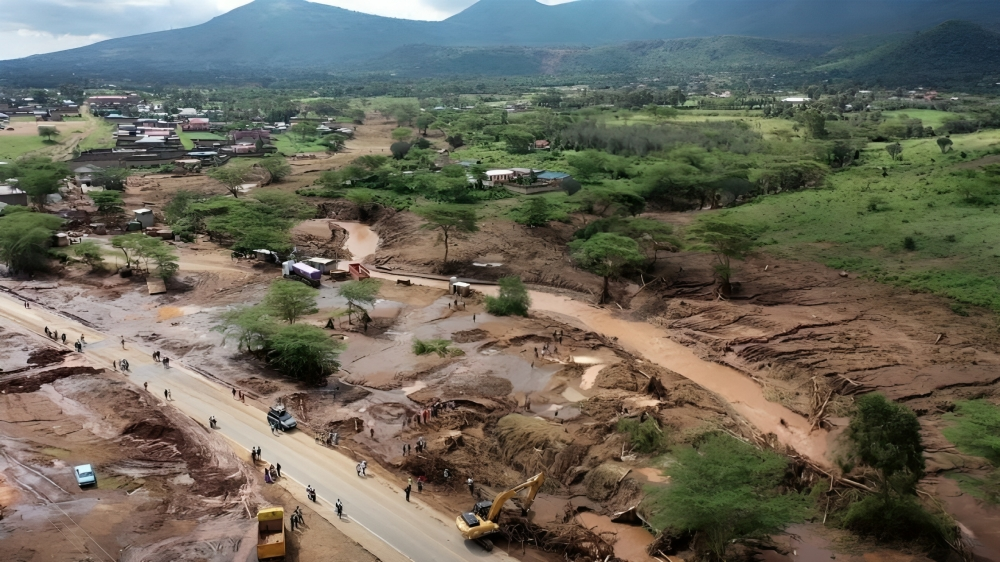The Economic Impact Of Ongoing Floods In Kenya

Kenya, known for its vibrant economy and its highly competitive business market among the countries in East Africa is currently grappling with severe flooding across various regions. The impact of these floods extends beyond immediate human intervention and poses a significant challenge to businesses and the overall economy.
One of the Major effects is the disruption of the supply chains. Many industries in Kenya rely on smooth transportation networks to receive raw materials and distribute finished products. However, with roads submerged and infrastructure damaged due to flooding, supply chains have severely been hampered.
These disruptions have led to delays in production, shortages of goods, and increased operational costs for businesses.
For instance, agriculture, a key sector in Kenya’s economy, is particularly vulnerable during floods. Farms have faced destruction of crops, loss of livestock, and damage to equipment. This not only affects farmers directly but also impacts other industries such as food processing and distribution.
The flooding significantly impacts Kenya’s tourism sector, a key component of the economy. With the recent flooding in Maasai Mara, one of the major attractive destination sites in the country, tourists have been forced to evacuate and even fly back to their countries.
The floods have also disrupted tourist travel routes and adversely affected wildlife habitats. This has reduced revenues for hotels, tour operators, restaurants, and souvenir shops.
Consequently, businesses operating in flood-affected areas have faced increased operational costs. This may arise as a result of maintaining and repairing damaged machinery that has strained the business budgets.
The need for emergency measures such as applying flood-resistant technologies has added to the expenditure. Businesses have also incurred higher insurance rates.
Floods have also affected the labor force in the country by displacing workers from their homes and additionally affecting their ability to commute to work. Employees have also been faced with the risk of acquiring health problems due to being exposed to the water that might be contaminated.
Employees have gotten psychological stress and trauma from the ongoing floods, some even losing their loved ones. This has caused decreased productivity in the workplace even among those unaffected as they live in fear of what might occur in the future.
The government plays a key role in the mitigation of this disaster. Offering safe solutions to curb concurrent disasters will be important to save the economy from also drowning.




